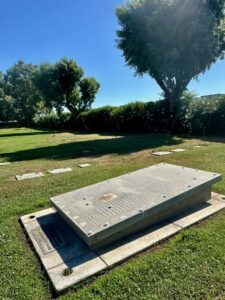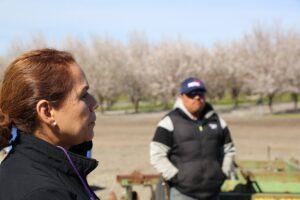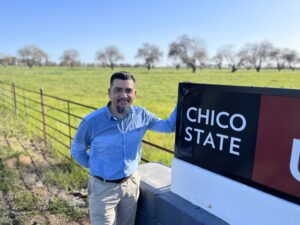
by Lindajoy Fenley
posted May 31
In folk music circles, most people know Woody Guthrie’s song “Plane Crash at Los Gatos.”
But few ever visit Fresno’s Holy Cross Cemetery where a mass grave holds the remains of 28 farmworkers who died in the fiery 1948 plane crash that the song is about.
The song bemoans the fact that the farmworkers who were being deported to Mexico had no names in either news reports at the time of the crash or on a diminutive stone that marked their common grave at the edge of the little graveyard. The media reported only the names of the plane’s crew and the immigration officer who died in the crash with them. In protest, Guthrie made up generic names for the migrants and his 1948 words were put to music 10 years later by Martin Hoffman.




